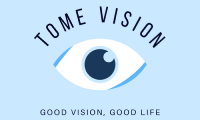Seasonal Eye Care Tips
Our eyes are vital organs that require proper care and attention throughout the year. However, just like our skin, our eyes can be affected by the changing seasons. In order to keep our vision in optimum condition, it is important to follow some seasonal eye care tips. Here are some valuable tips to protect your eyes during each season.
Summer Eye Care Tips:
1. Wear Sunglasses: During the summer, the sun’s harmful UV rays are at their strongest. Protect your eyes from these rays by wearing sunglasses that offer 100% UV protection. Look for sunglasses that block both UVA and UVB rays to shield your eyes from damage. Additionally, wearing a wide-brimmed hat provides extra protection for your eyes and face.
2. Stay Hydrated: The hot summer months can lead to dehydration, which can affect your eyes. Drinking plenty of fluids, especially water, helps to maintain proper eye moisture and prevents dryness and irritation. Avoid excessive consumption of caffeine or alcohol as they can contribute to dehydration.
3. Use Eye Protection: If you enjoy outdoor activities such as swimming or playing sports, make sure to wear appropriate eye protection. Goggles or swim masks are essential to keep chlorinated water or UV rays from causing eye irritation, infections, or damage.
4. Take Breaks from Screens: Summer vacation often means more time spent on electronic devices, such as laptops, tablets, and smartphones. However, excessive screen time can lead to digital eye strain, causing symptoms like blurry vision and eye fatigue. Follow the 20-20-20 rule: Every 20 minutes, take a 20-second break and focus on something 20 feet away to reduce eye strain.
Winter Eye Care Tips:
1. Moisturize: During the winter months, the air becomes drier, which can cause dryness and irritation in your eyes. Using a humidifier indoors helps to add moisture to the air, preventing your eyes from becoming dry and itchy. Additionally, using artificial tears or lubricating eye drops can provide relief from dryness.
2. Protect from Winter Elements: Cold winds and snow can pose risks to your eyes. Wearing protective eyewear, such as goggles or sunglasses, helps shield your eyes from harsh winds and UV rays that reflect off of snow and ice. These protective barriers help to prevent conditions like snow blindness and windburn.
3. Avoid Heated Air: Heaters and forced air systems often dry out the air inside your home or workplaces during winter. Dry air can evaporate the natural moisture in your eyes, leading to dryness and discomfort. Consider placing a small bowl of water near heating vents to add moisture back into the air.
4. Maintain Good Hygiene: During the winter months, many people suffer from colds and flu. These illnesses can cause eye infections like conjunctivitis (pink eye). Proper hand hygiene, such as frequent hand washing and avoiding touching your face, can help prevent the spread of germs and protect your eyes.
Remember, taking care of your eyes should be a year-round priority. Regular eye exams, a balanced diet rich in eye-friendly nutrients, and adequate sleep are essential for maintaining good eye health. By following these seasonal eye care tips, you can protect your eyes and keep your vision clear throughout the year.
